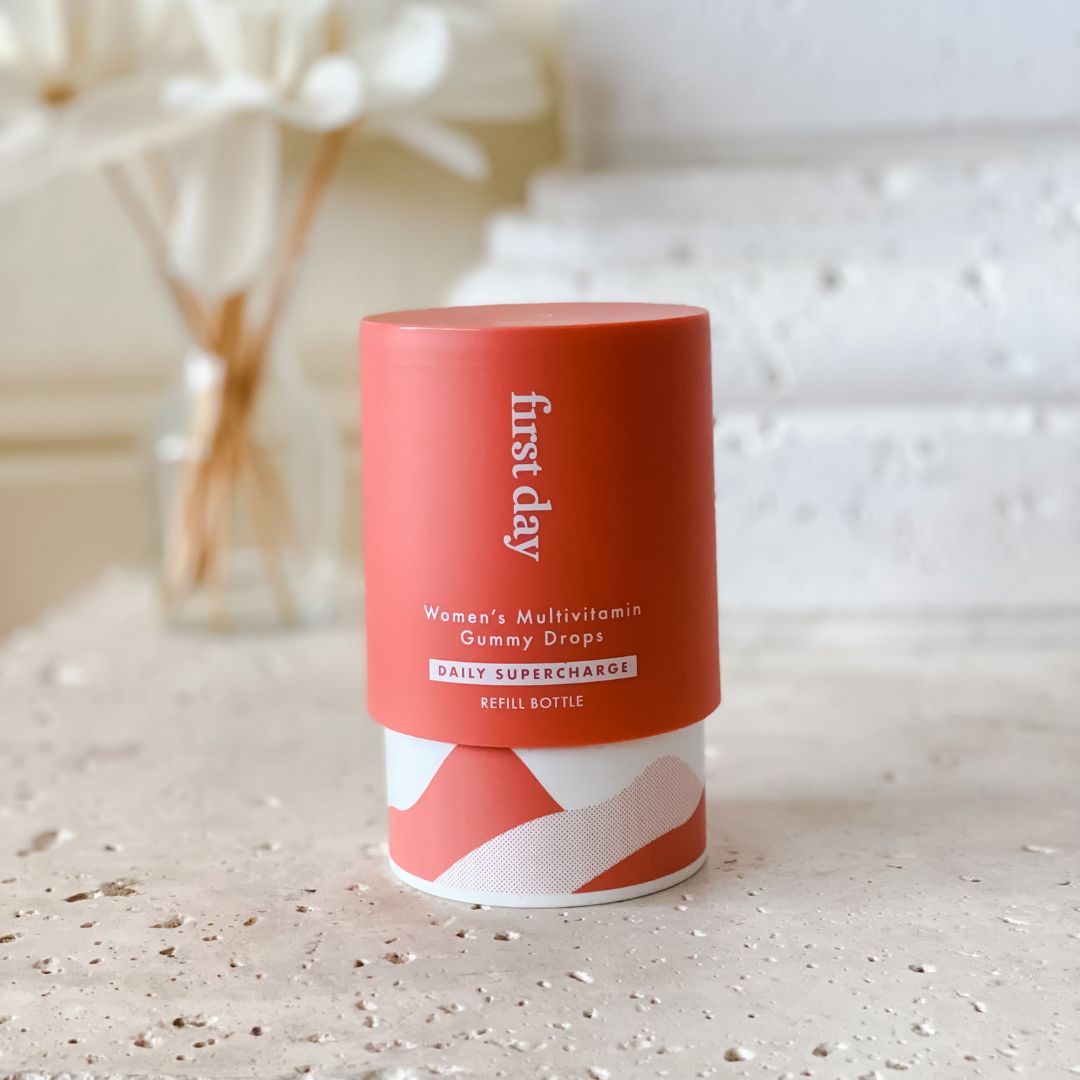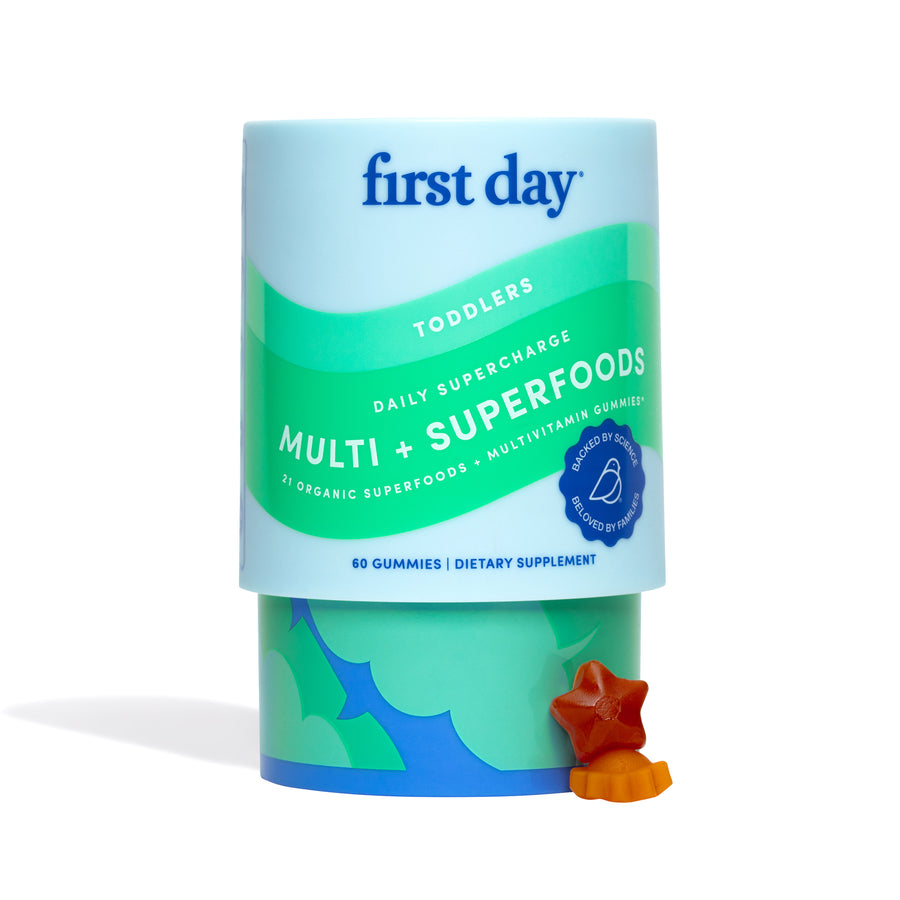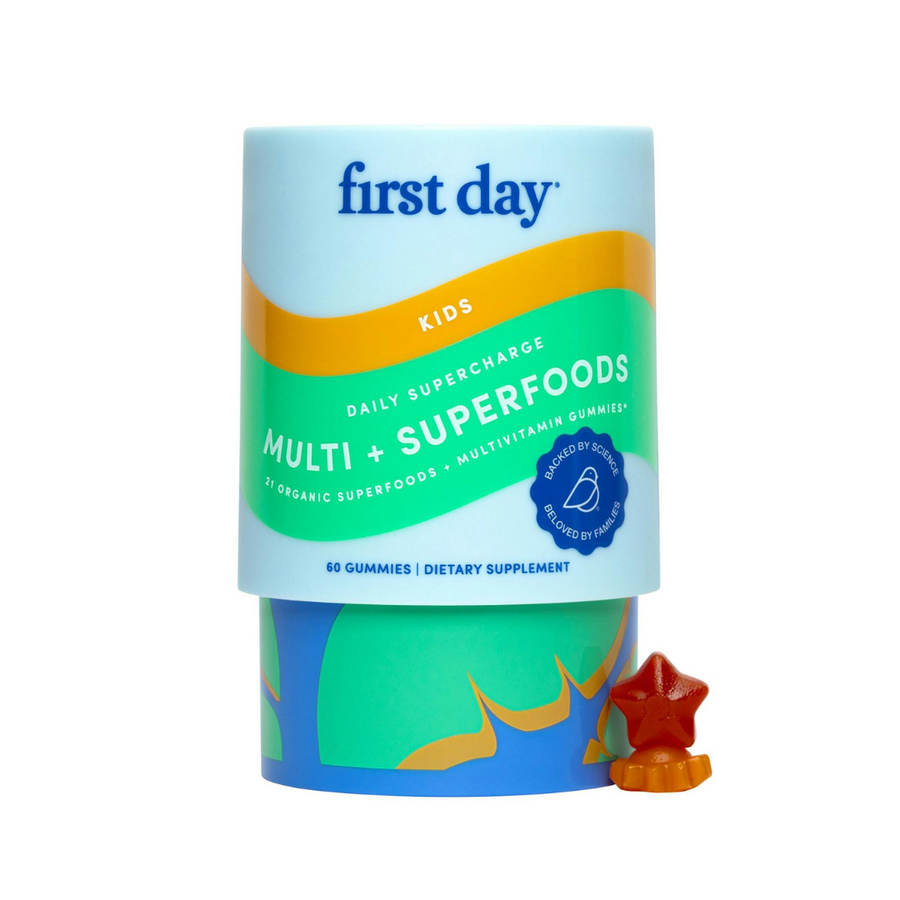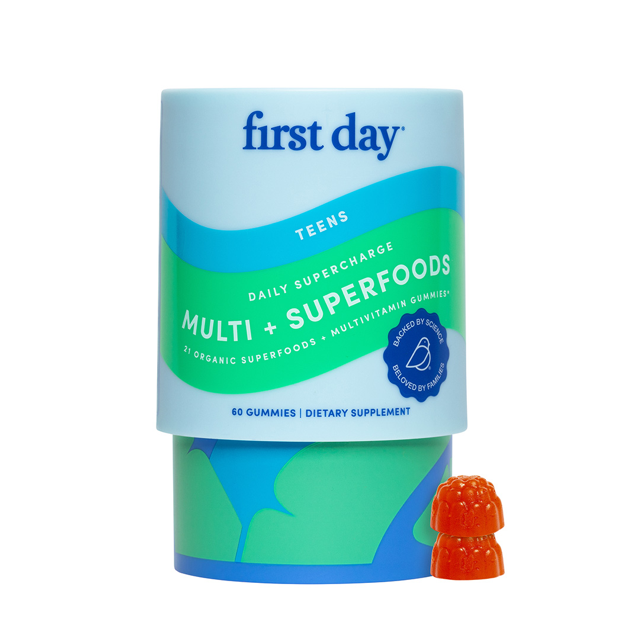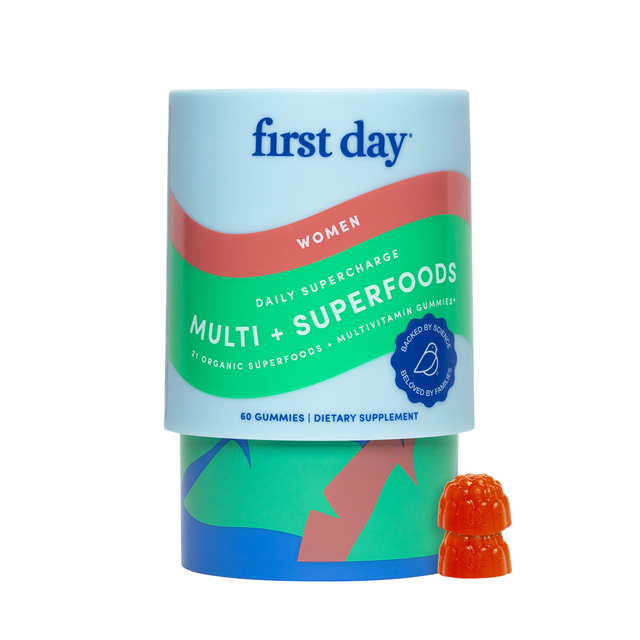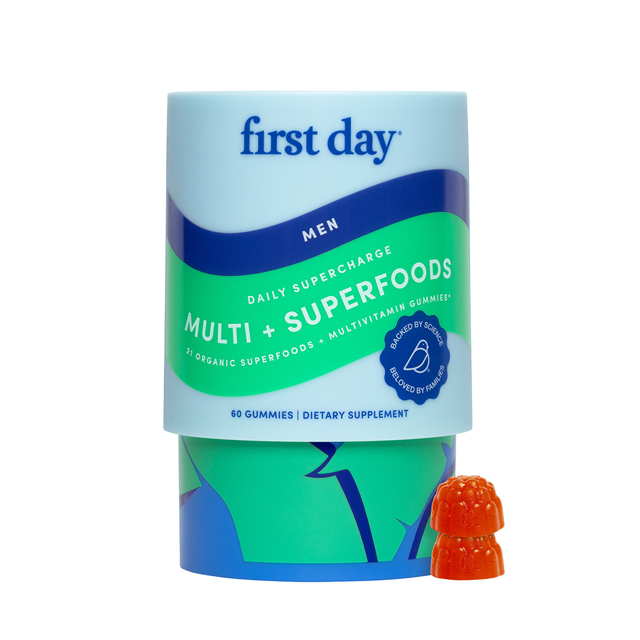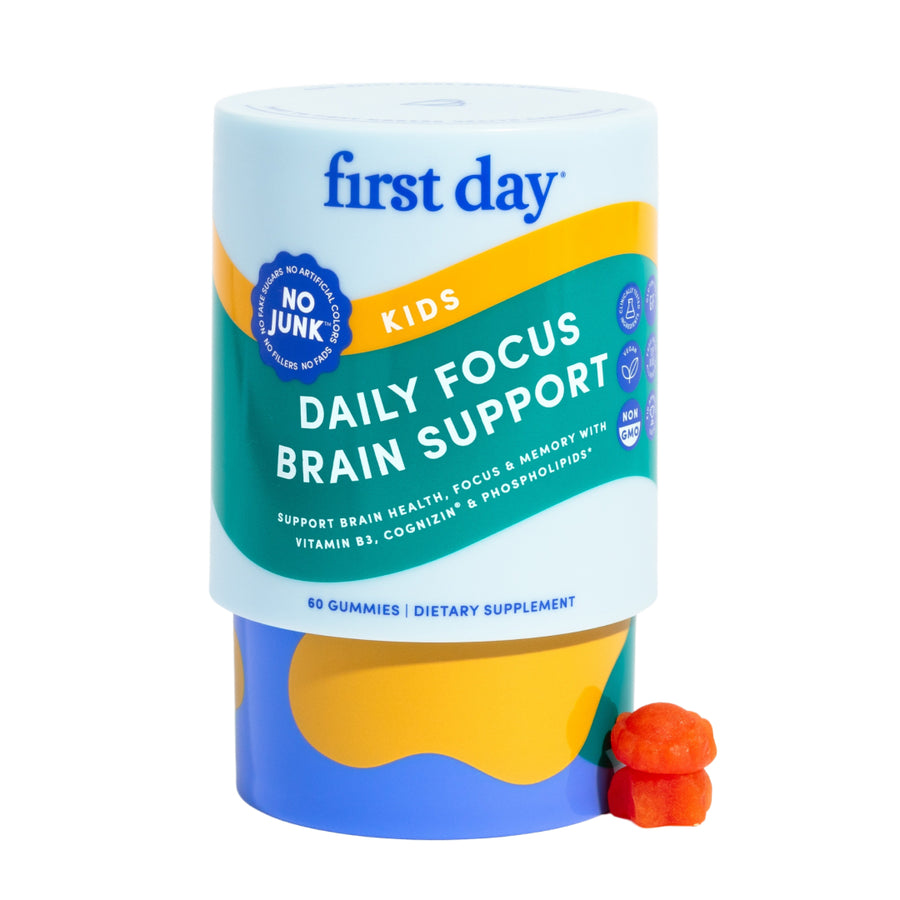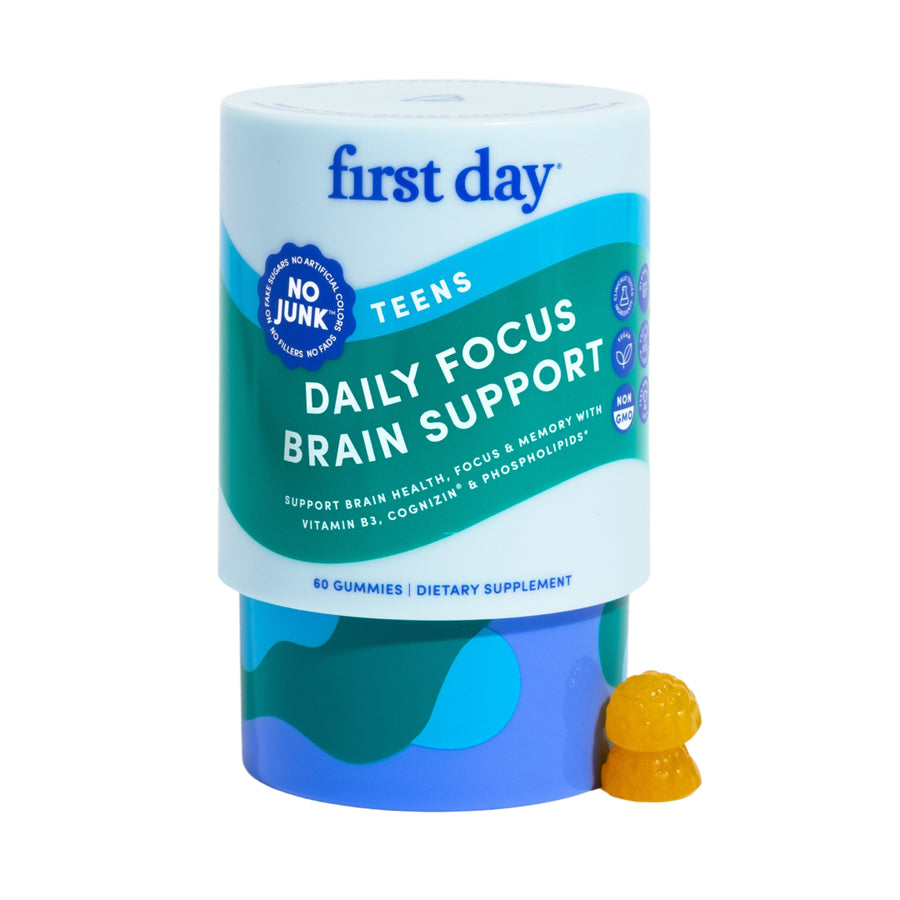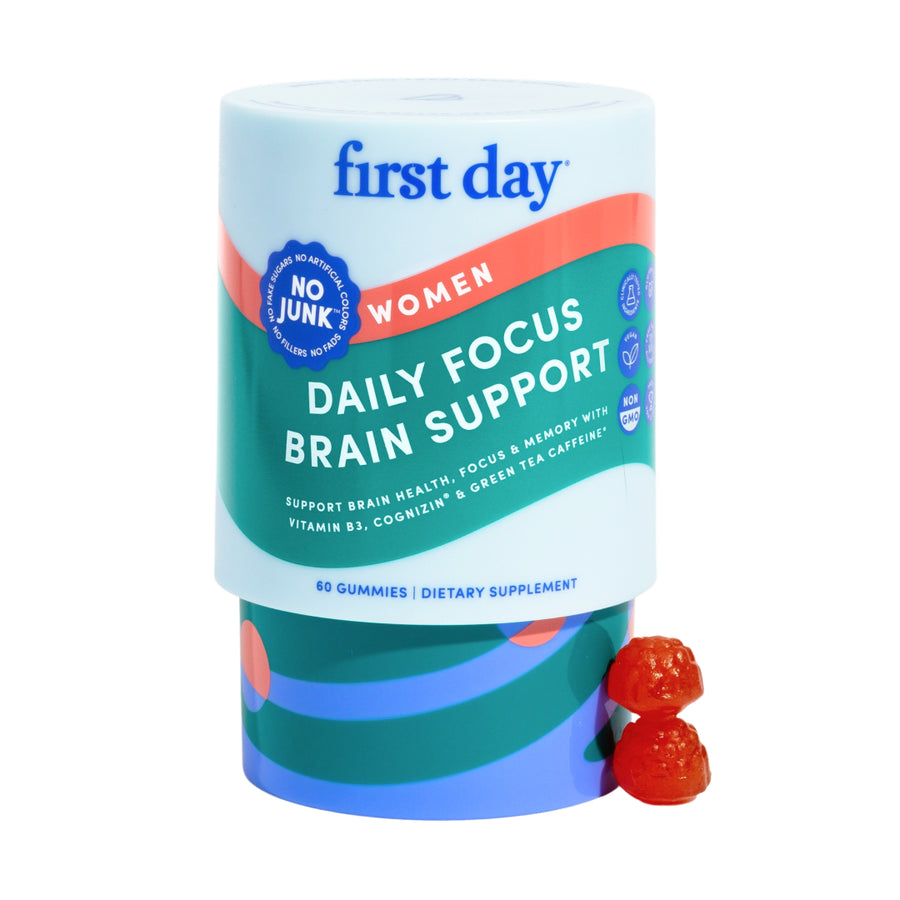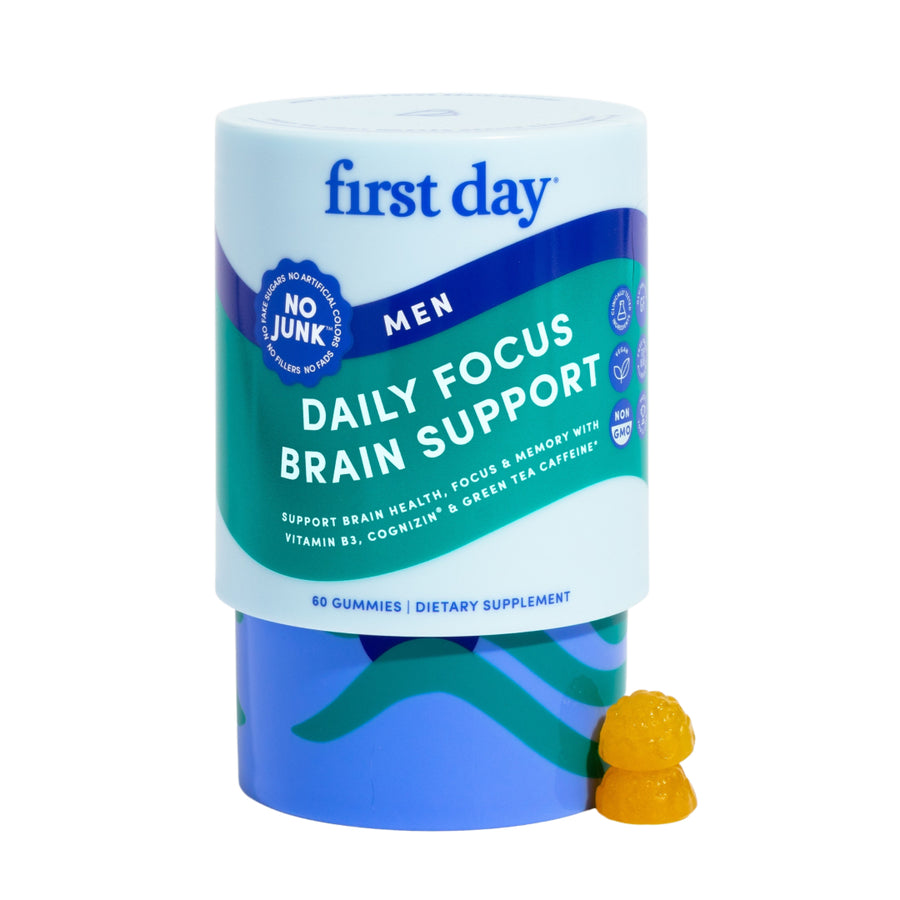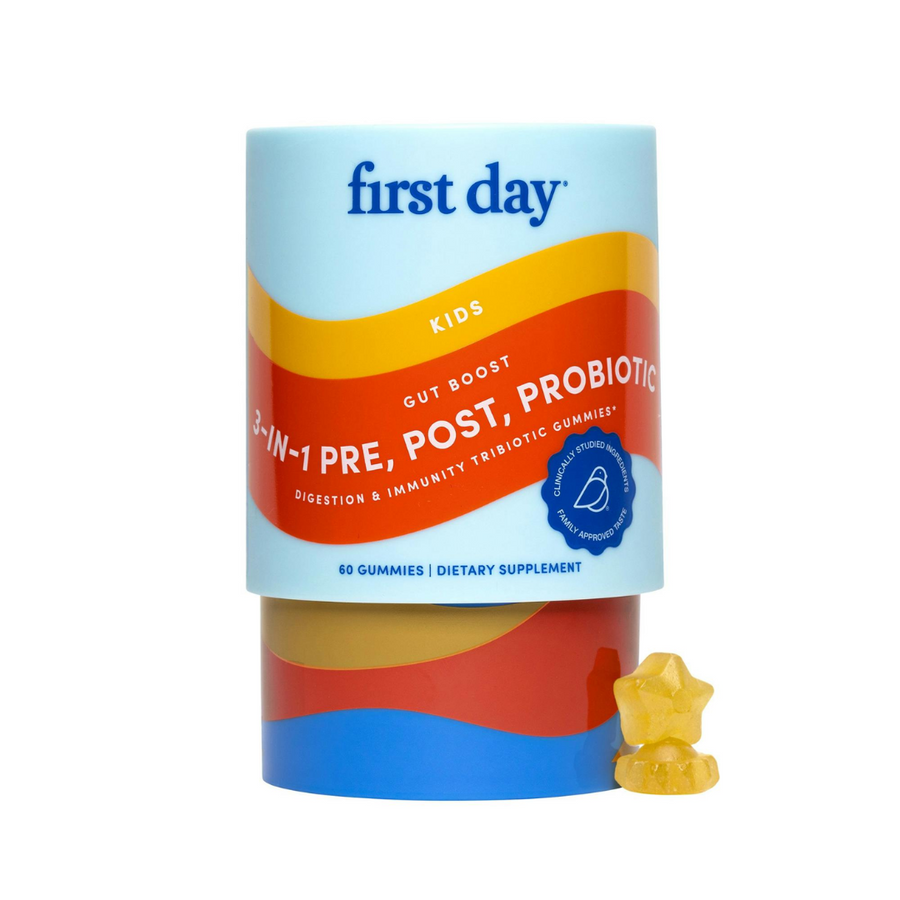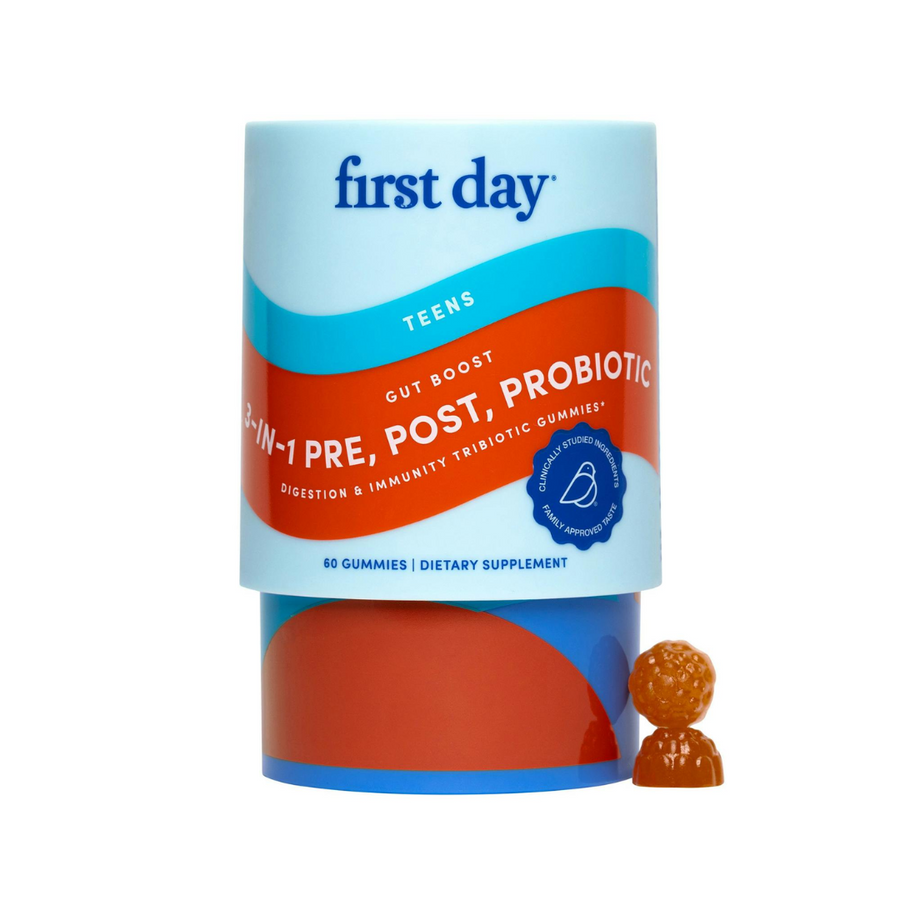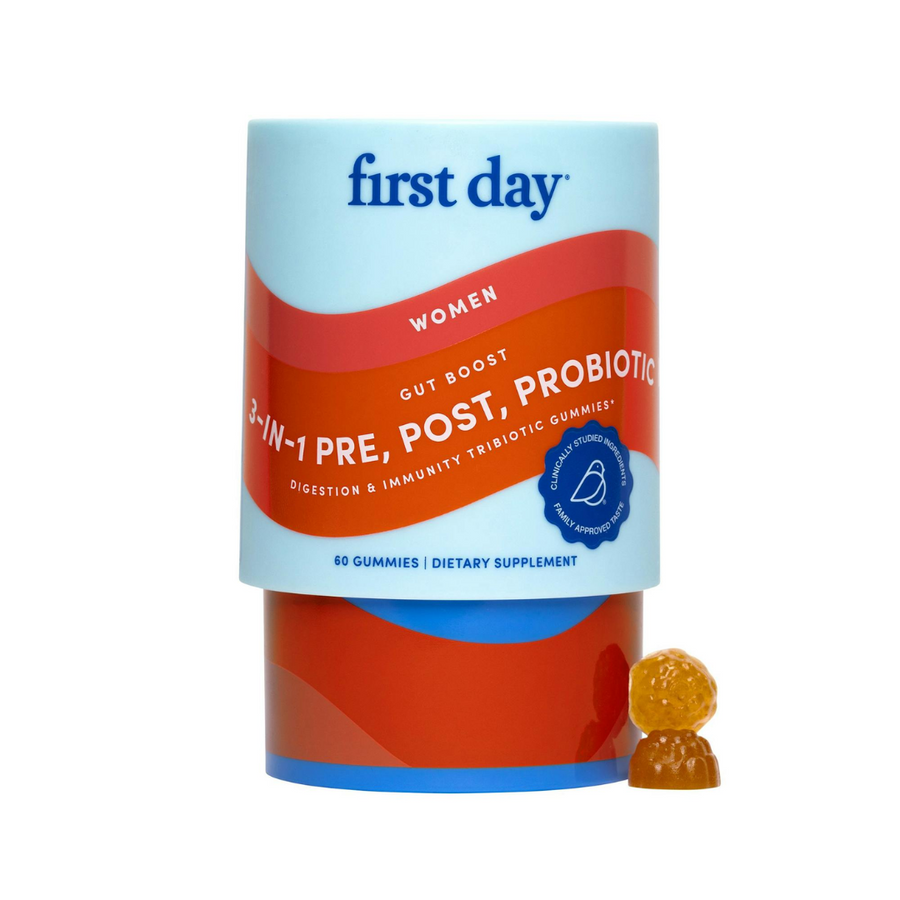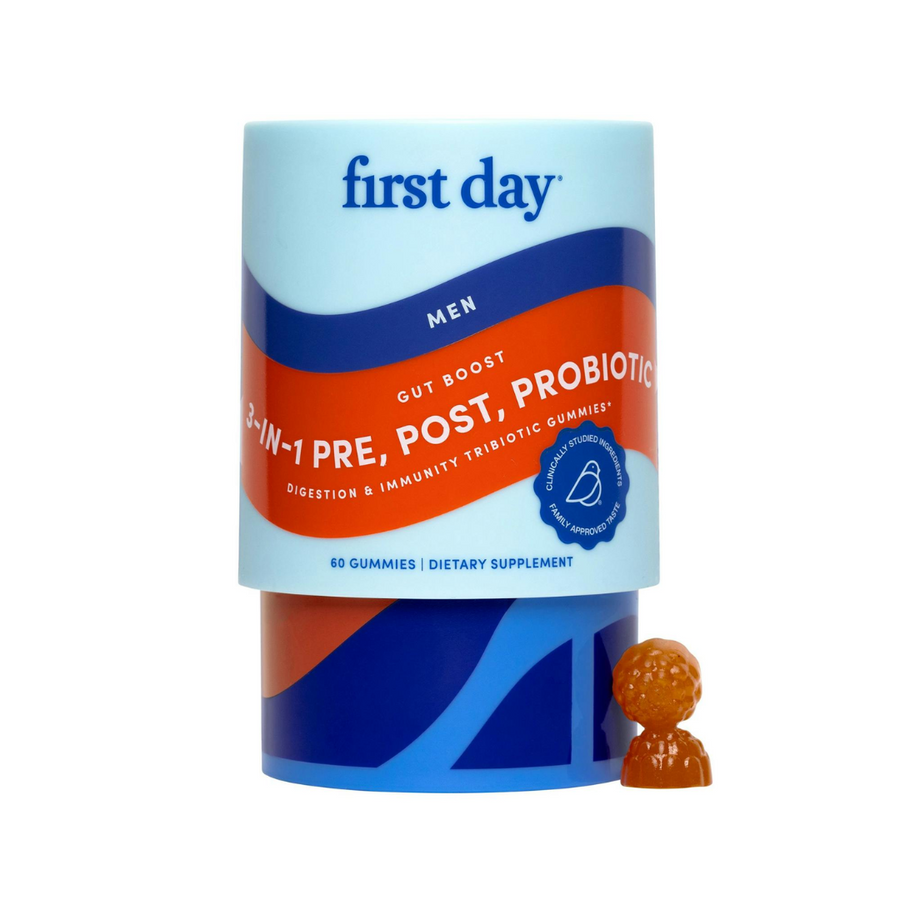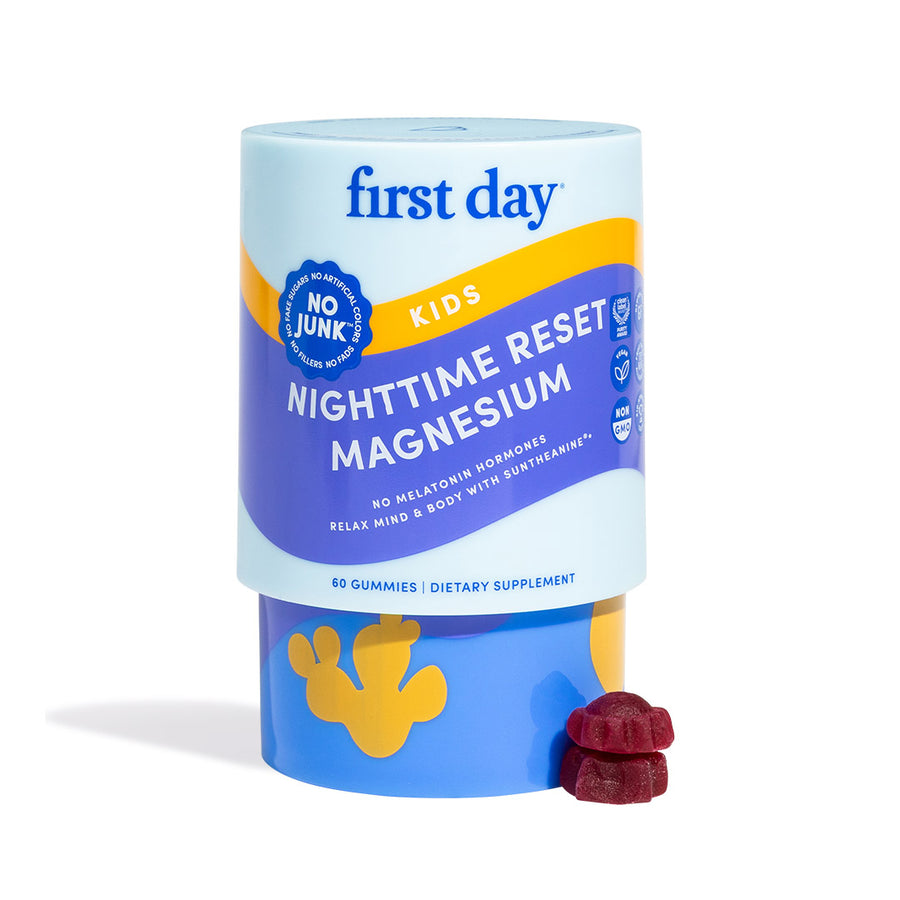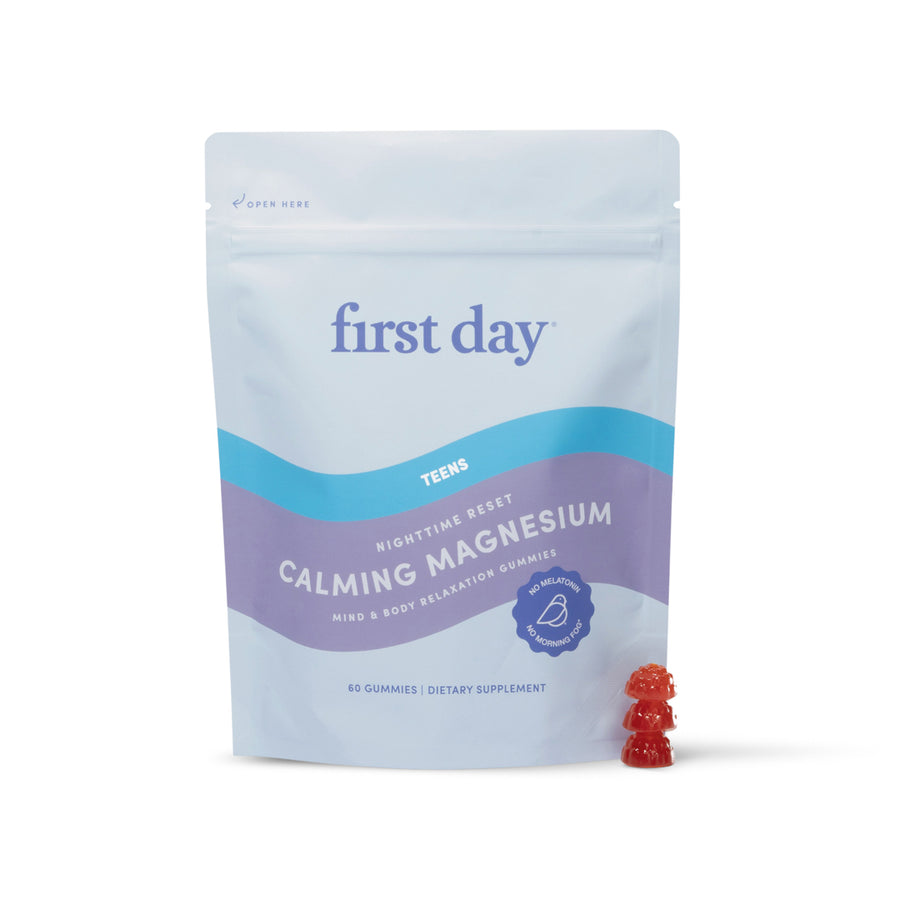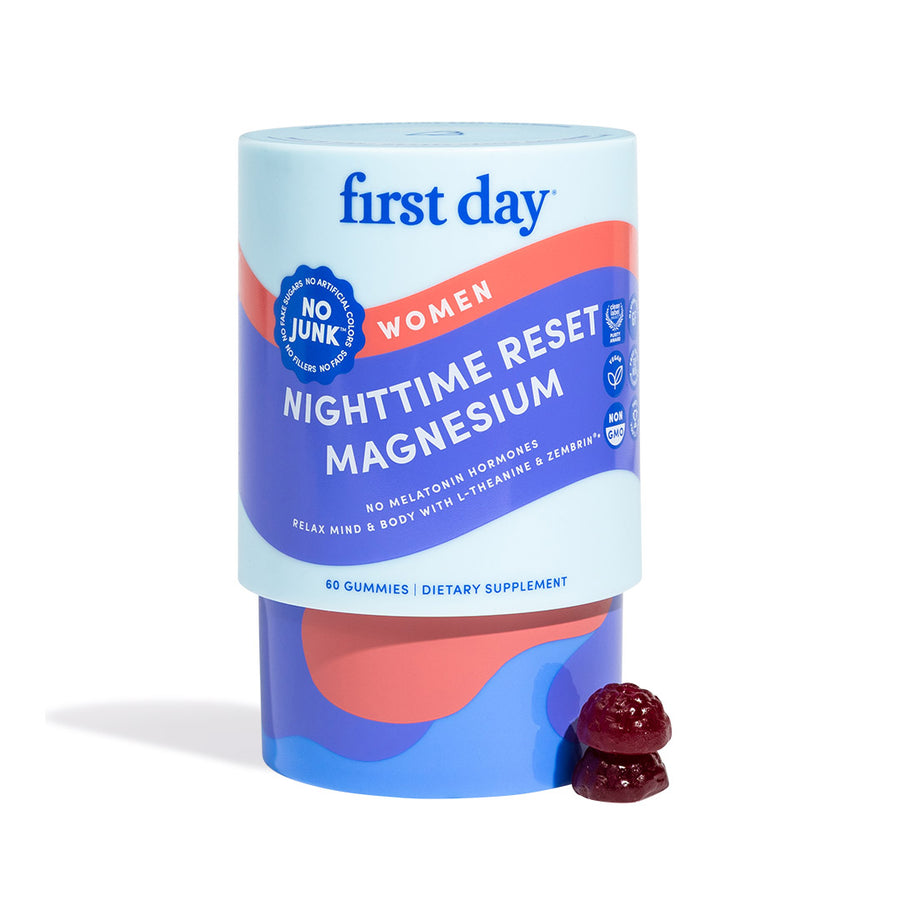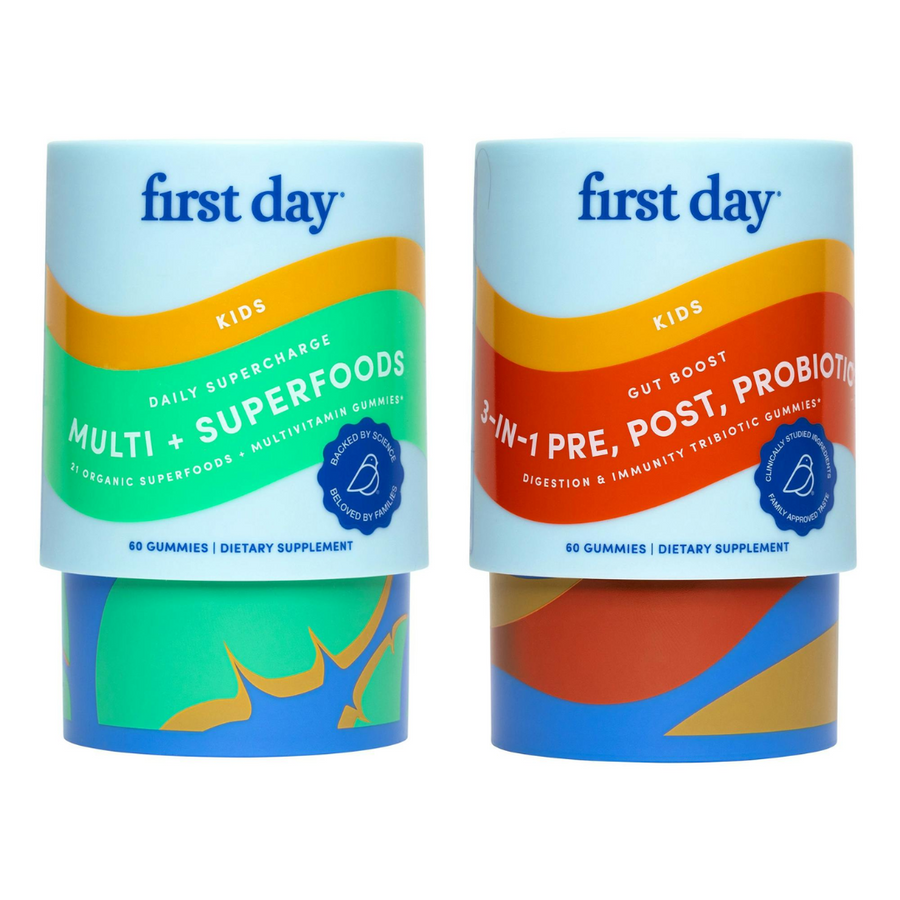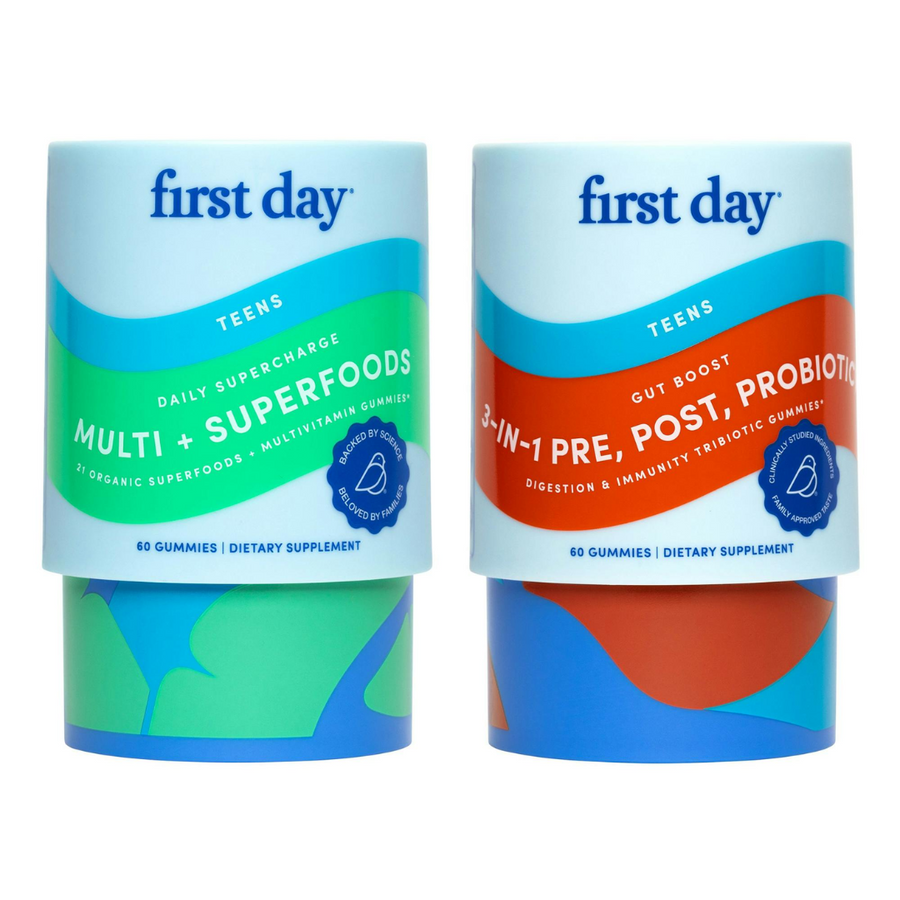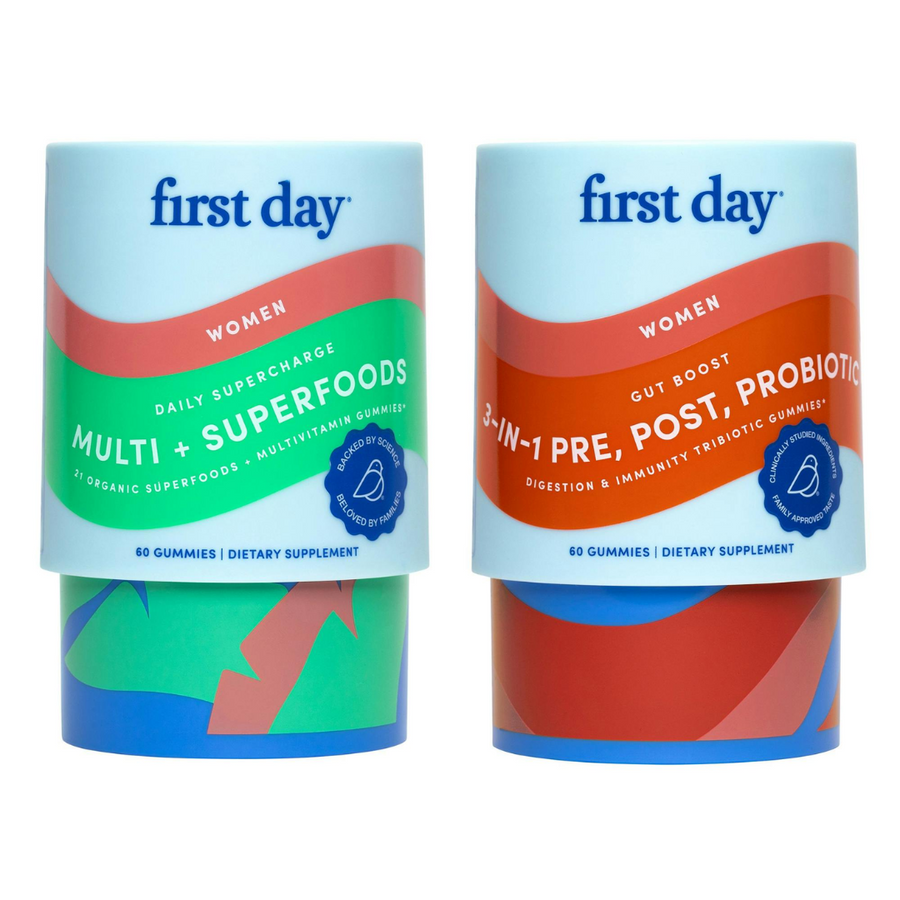Remember those mornings when your parents handed you colorful, chewy, and "oh-so-healthy" multivitamins as you were rushing out the door? Growing up, we were all told by our parents, friends, and loved ones that these vitamins were our secret potion to a strong and healthy life. And being the good citizens we are, we dutifully popped those daily supplements. But in the middle of all this routine, a question lingers: do they actually work? Are multivitamins good for you, or are we just clinging to a comforting myth?
Well, you’ve come to the right place! Here at First Day, our awesome researchers have dug through tons of studies to formulate the tastiest gummy multivitamins for the whole family. So, buckle up as we take you on a fun ride through everything you need to know. Are multivitamins good for you? Let’s dive in and find out!
What's Inside These Little Gummies?
Multivitamins are a blend of essential vitamins and minerals that your body needs to function at its best. These typically include vitamins A, C, D, E, and K, as well as B-complex vitamins like B6 and B12. Minerals like calcium, magnesium, and zinc are also common ingredients found in multivitamins. These are all essential vitamins and minerals your body needs to rock, move and roll all day long! And each of these nutrients has its own specific role in keeping us healthy.
Here we have a breakdown of water-soluble vitamins (B-vitamins and vitamin C) and fat-soluble vitamins (vitamins A, D, E, K) and their uses:
- Vitamin A: Great for your vision and immune system.
- Vitamin B6: Helps with brain health and keeps your metabolism in check.
- Vitamin B12: Essential for energy and blood cell formation.
- Vitamin C: Boosts your immune system and keeps your skin healthy.
- Vitamin D: Crucial for strong bones and teeth.
- Vitamin E: Protects your cells from damage.
- Folic Acid (Vitamin B9): Important for cell growth and building DNA.
- Biotin (Vitamin B7): Enhances the health of your skin, hair, and nails.
- Pantothenic Acid (Vitamin B5): Helps your body produce energy from food.
These all-stars work together to keep you feeling and looking your best every day!
How Much Should You Really Take?
So, how much do you really need? According to the Office of Dietary Supplements, your daily dose of nutrients isn't one-size-fits-all. It varies based on your age, gender, and overall health. Vitamin and mineral supplements are designed to give you a balanced mix, but always check the label for the right dosage and the amount of each nutrient included. This way, you can make sure your body gets exactly what it needs. Remember, going overboard with certain vitamins can be bad news—like too much vitamin A can be harmful. Vitamin A toxicity (or hypervitaminosis A) can lead to tummy aches, nausea, and even liver damage.
Keep in mind that your nutrient needs change depending on factors like whether you're pregnant or if your body is low on certain micronutrients, also known as hidden hunger. So, read those labels and, if in doubt, chat with your doctor. They can perform simple blood tests to check your levels and suggest the right vitamin and dosage for you.
Why Bother with Multivitamins?
Let’s cut to the chase—why should you even care about multivitamins? Are they worth adding to your daily routine or just another fad? Plain and simple, are multivitamins good for you?
Filling Nutritional Gaps
We all aim to eat a balanced diet, right? But, sometimes we reach for a quick snack or junk food instead of a healthy meal like brown rice, steamed salmon, and colorful veggies. Sounds mouthwatering, right? But without eating those tasty meals, we miss out on the essential vitamins and minerals our bodies need to function.
That's where multivitamins come in, filling those nutritional gaps. According to the Council For Responsible Nutrition, , many people don't get enough essential nutrients from their diet alone. Multivitamins help ensure you're not missing out on the vitamins and minerals your body needs to function properly.
Boosting Immune System
From fighting off the common cold to helping your body recover from injuries, vitamins play a vital role in supporting your immune system. Vitamins A, C and E are the top players when it comes to building your body's defense mechanism. They are well-known for their antioxidant effects, which help protect your cells from damage caused by free radicals. These pesky molecules (the free radicals) can contribute to chronic diseases such as cancer and cardiovascular disease.
Supporting Overall Health
Remember that long list of benefits that came with each vitamin? Well, based on that, it's easy to see that having a healthy and happy mix of vitamins and minerals can target a variety of health issues. Eyes, brain, bones and muscles, heart, metabolism, you name it!—multivitamin supplementation has it all covered.
But don't go mixing and matching individual vitamins to get the same effect. Multivitamins are designed to give you the perfect mix, making sure your body is getting what it needs in one convenient dose!
What Affects How Well Multivitamins Work?
Let's whisper a little secret in your ear: Not all multivitamins work the same.
Did you hear that? Multivitamins come in all shapes, sizes, and formulas. Their quality depends on many factors like where they’re produced, what ingredients are used, and how they're packaged. So, before you make a purchase, ask yourself these questions:
Which Vitamins and Minerals Does It Contain?
A good vitamin or mineral supplement should include at least most of the vitamins listed above. But some vitamins should not be taken together. Do a bit of research and check with your doctor. But the sign of a good multivitamin is using vitamins that work together, not against each other.
Does It Contain Fillers and Additives?
Some multivitamins have a long list of ingredients that you can hardly pronounce. Avoid those with unnecessary fillers, artificial colors, or artificial sweeteners. Opt for natural gummy supplements like the ones we make here at First Day that are free from all these harmful add-ons.
What About Bioavailability & Nutrient Absorption?
You're right! What about them? In plain English, bioavailability means how much of the nutrients are ready to be absorbed and used by your body. Nutrient absorption, on the other hand, is how much of the nutrients actually get taken in and used by your body.
So, multivitamin brands should be providing you with the most bioavailable form of vitamins so you can get the most out of each nutrient. This means you're getting more bang for your buck and absorbing all those happy nutrients. Brands should also be transparent about where their ingredients come from, how they're made, and which forms they're in.
Are the Doses Appropriate?
The amount of each vitamin should be enough to make a difference without going overboard. Vitamin toxicity is no joke. Depending on the type of vitamin, you can get anything from mild side effects like a tummy ache to serious health issues. For example, vitamin E toxicity can bring on nausea and diarrhea, while too much vitamin D can cause kidney damage.
What Is the Quality of the Manufacturing?
Unfortunately, some brands don't prioritize the quality and potency of their multivitamins, which causes their multivitamins to be filled with contaminants. We can't have that! So, here at First Day, our team makes sure to test our product at least three times (Yes, that's right! Three times!) before it lands in your hands.
Is It Age-Appropriate?
Kids and teens have different nutritional needs than adults, so make sure you choose the right multivitamin for your age group. Kids need the right amount of vitamins B, D and C to grow big and strong while fighting off any pesky germs along the way. But make sure to choose a Kids’ multivitamin that is tailored for kids and contains safe doses according to their age- and is also tasty.
For example, First Day caters to the whole family! Yes, dad, mom, teens, and young kids too! Everything is tailored according to each stage in life, we're talking about the right vitamins in the right doses. Isn't that great?
Find The Perfect Multivitamin For The Whole Family & Save 15% Today!
Allergic to Gelatin?
No one wants a gelatin allergic reaction to be thrown into their vitamin routine. If you're allergic to gelatin, look for vegan gummy options such as pectin, made from the peels of fruits. Our team at First Day understands this common issue, and that's why all our gummies are made using pectin instead of gelatin.
So, Are Multivitamins Good for You?
The simple answer? Absolutely, but quality matters! Multivitamins can be a fantastic way to fill those nutritional gaps and give your body the support it deserves—especially when life gets busy and meals don't always go as planned. They can help with everything from boosting your immune system to supporting overall health, making them a staple in many people’s daily routines.
But, remember, it never hurts to be picky about what you're putting into your body. Not all multivitamins are created equal, and the last thing you want is to consume subpar products that underdeliver or, worse, cause harm due to poor-quality ingredients. Always do your homework, check your dosages, and opt for reputable brands that prioritize your health and well-being.
Speaking of reputable brands, why not give First Day multivitamins a try? Our gummies cater to the whole family - from dad to mom, teens, and young kids, everyone is covered! Made with the best ingredients and the right doses for each stage of life, you'll be providing your loved ones with the essential nutrients they need to thrive.
Lykstad, J., & Sharma, S. (2020). Biochemistry, Water Soluble Vitamins. PubMed; StatPearls Publishing. https://www.ncbi.nlm.nih.gov/books/NBK538510/
Reddy, P., & Jialal, I. (2020). Biochemistry, Vitamin, Fat Soluble. PubMed; StatPearls Publishing. https://www.ncbi.nlm.nih.gov/books/NBK534869/
National Institute of Health. (2019). Nutrient Recommendations and Databases. Ods.od.nih.gov; National Institutes of Health. https://ods.od.nih.gov/HealthInformation/nutrientrecommendations.aspx
Olson, J. M., Ameer, M. A., & Goyal, A. (2024). Vitamin A Toxicity. PubMed; StatPearls Publishing. https://www.ncbi.nlm.nih.gov/books/NBK532916/#:~:text=Prolonged%20and%20excessive%20vitamin%20A
Americans Do Not Get All the Nutrients They Need From Food | Council for Responsible Nutrition. (2011). Crnusa.org. https://www.crnusa.org/resources/americans-do-not-get-all-nutrients-they-need-food
Office of Dietary Supplements - Dietary Supplements for Immune Function and Infectious Diseases. (n.d.). Ods.od.nih.gov. Retrieved July 11, 2024, from https://ods.od.nih.gov/factsheets/ImmuneFunction-HealthProfessional/#:~:text=Obtaining%20adequate%20amounts%20of%20vitamins
Gelatin allergy. (2020). Aaaai.org. https://www.aaaai.org/allergist-resources/ask-the-expert/answers/old-ask-the-experts/gelatin-allergy
Flutto, L. (2013). Pectin - an overview | ScienceDirect Topics. Sciencedirect.com. https://www.sciencedirect.com/topics/neuroscience/pectin
